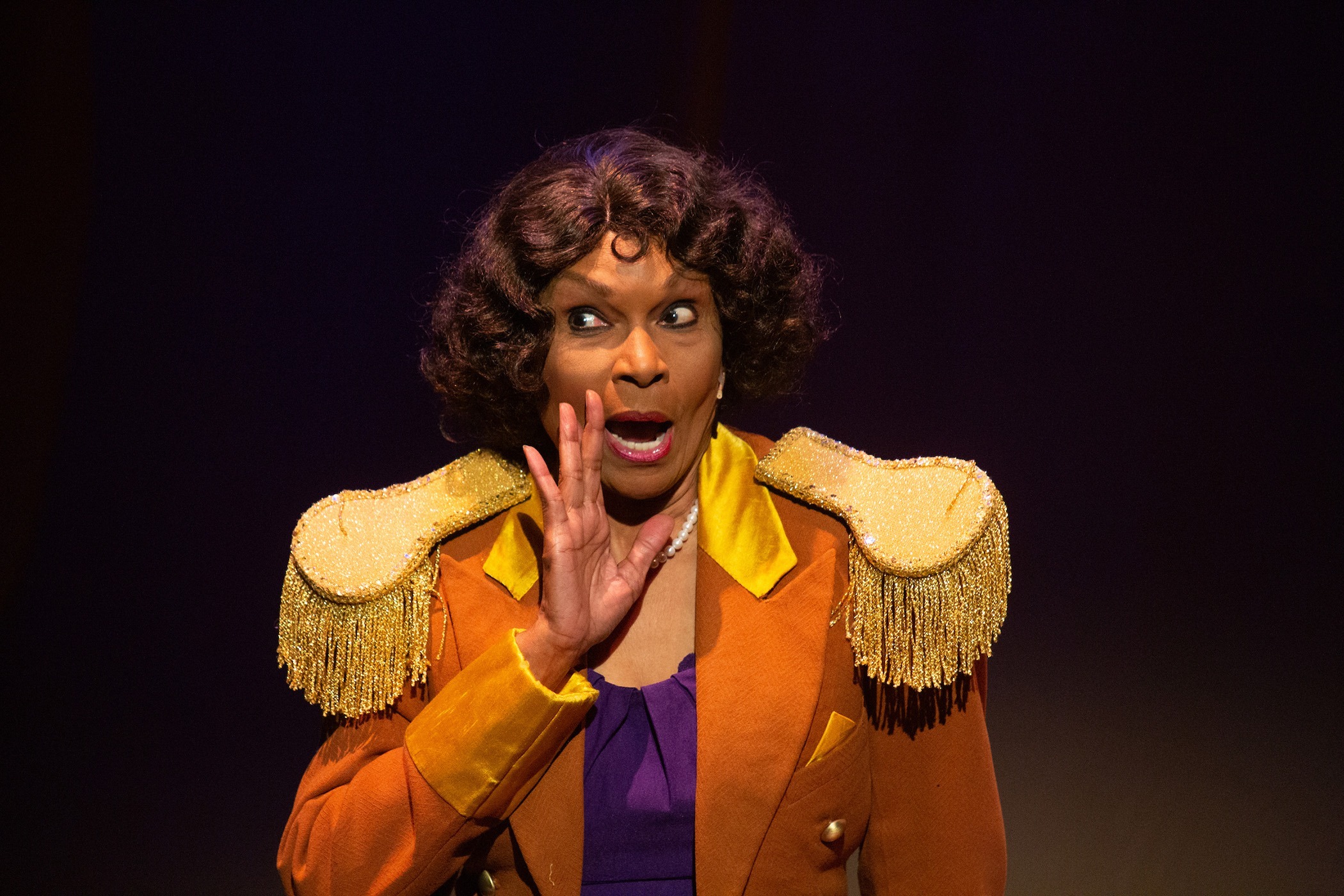
The blues—the seminal American art form and musical forebear of so much that followed—would appear to be the most direct of lyrical projects. But according to Richard Wright, as an instrument of affect, “the blues possess unconscious elements of surrealism”—and its practitioners were among the first home-grown exemplars of a movement that scrambled the subjective and the objective, the real and the exaggerated, the temporal and spatial.
All of which makes the blues a natural fit for the revue form. BLUES IN THE NIGHT—Sheldon Epps’ theatrical conception of a night of the blues and jazz standards which premiered in New York in the early 1980s—is on stage at the International City Theatre in Long Beach. The set up: Three women of varying ages and experience—here billed as “The Girl with a Date,” “The Woman of the World,” and “The Lady from the Road”—congregate in a Chicago Hotel in 1948 and sing about their troubles with life and men, embracing the former and questioning the necessity of the latter. In fact, a male singer—”The Man in the Saloon”—rounds out the cast. But despite a more than adequate performance by the actor who plays him (Chester Gregory on the opening weekend, Parris D. Mann thereafter), the show might be more effective if he was discussed in absentia.
You are here for the women. As the ingénue, Jenna Gillespie Byrd performs her solo numbers with warm distinction. Karole Foreman—playing a soigné figure out of an Ellington daydream—puts over Billy Strayhorn‘s mini-epic “Lush Life” with ease, beautifully slow-walks a decelerated “Stompin’ at the Savoy,” and shakes off the glitz as she nails Alberta Hunter‘s “Rough and Ready Man.” But as an embodiment of the blues—the expression of personal heartache and self-effacement, the sweet relief of a collective condition shared, one song at a time—Vivian Reed takes immediate command. With a persona and armature reminiscent of the aforementioned Hunter, Reed brings down the house several times with numbers like “Take Me for a Buggy Ride,” “Kitchen Man,” and Bessie Smith‘s “Wasted Life Blues.” The blues are also about sharp moments of laughter. But don’t mistake the humor of “The Lady from the Road”—and her way around a double entendre—for remedy or closure. In the words of José Esteban Muñoz: “Comedy does not exist independently of rage.”*

